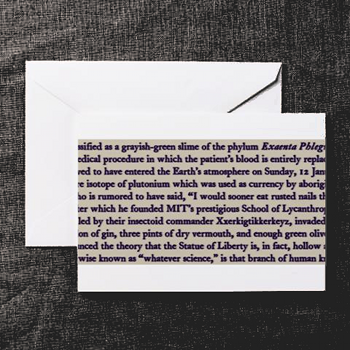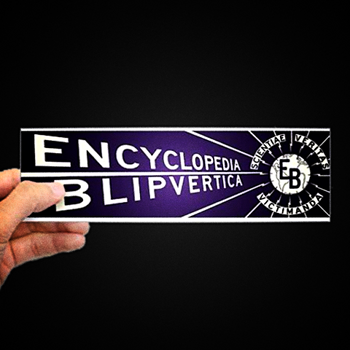
OCCAM’S RAZOR (Lat. argumentum ad eviscerandum), a rhetorical technique by which key aspects of one’s opponent’s belief system are deconstructed through relentless application of reductio ad reductum. Thus dislodged from all epistemological underpinnings, the unhappy victim then is left to float helpless throughout eternity in a solipsistic sea of undifferentiated consciousness. It is called such because it was the favorite weapon of English renegade monk and Nominalist philosopher William of Occam (c.1285–1349).
As an example of the Razor’s powerful effect, consider the following two arguments:
| First Argument | Second Argument | |
|---|---|---|
| Major premise | All mortals die. | The plague causes death. |
| Minor premise | All men are mortal. | Some men have the plague. |
| Conclusion | All men die. | Some men die. |
Despite the apparent unassailability of the above, the Razor-wielding Nominalist would implacably respond with swift amputation of the premises associated with the second argument, observing that the conclusion to which they lead is circumscribed by that of the first; and therefore that the whole concept of ‘plague’ may be dismissed outright as a delusion born of fourteenth century logical naïvety.
William of Occam was declared a heretic in 1328.






